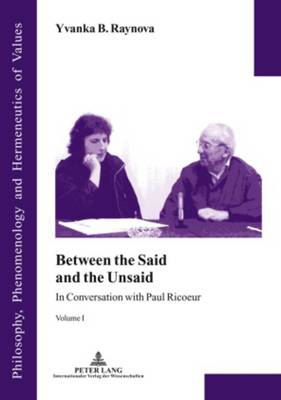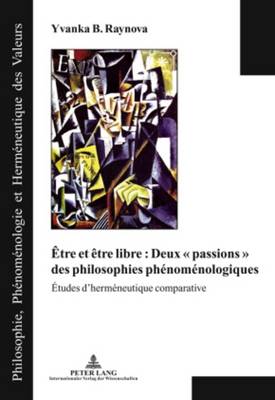Philosophie, Phaenomenologie und Hermeneutik der Werte
3 primary works
Book 4
Book 5
Etre Et Etre Libre: Deux " Passions " Des Philosophies Phenomenologiques
by Yvanka B. Raynova
Book 6
Das zentrale Anliegen des Buches ist es zu zeigen, dass die Phanomenologie nicht nur aus dem Krisis-Denken entstanden ist, sondern, dass dieses es ihr auch ermoeglicht hat, sich immer weiter zu entwickeln. Dadurch ist eine Vielzahl an phanomenologischen Richtungen und Methoden entstanden. Ferner wird gezeigt, inwiefern die Krise der Vernunft zu einer Krise des Sinns und des Seins fuhrt, die wiederum die Werte infrage stellt und eine Wertkrise ausloest. Diese axiologische Unsicherheit, namentlich bei Sartre, Arendt, Ricoeur und Derrida, spitzt sich in der Problematik der Verantwortung und des Menschlichen - die Menschenwurde und die Menschenrechte inbegriffen - besonders zu und mundet in die Notwendigkeit eines Umdenkens von Geschichte und Gemeinschaft.


